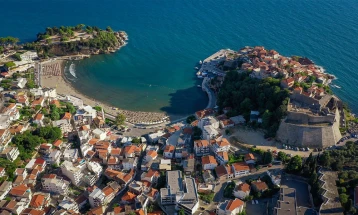Liberalisation of prices endangered 100,000 citizens
- Liberalisation of prices endangered 100,000 citizens
- Post By daniloc
- 13:07, 25 avgust, 2001

Liberalisation of prices of bread and milk would endanger 100,000 citizens of Montenegro. This is an estimation of the European Union, stated by Montenegrin minister of labour and social welfare, Dragisa Burzan.
Burzan said that it was the maximum number of those who could be endangered by consequences of this measure, taken by the Government on August 3, and which enables free prices of bread and milk.
“Our estimation is that this number is significantly lower, and new measures of social policy of the Ministry of labour and social welfare would influence better situation for this population category,” said Burzan at today’s press conference, held after the session of the Government.
He said that new subsidies that the Government passed for those who were socially most endangered, were increased in comparison with the previous period, but he added that the selection had been made in population that needed aid.
Minister of trade, Ivan Raicevic, said that the reduction of prices of flour by Directorate for reserves of goods was expected the following week for minimum 10%, as a consequence of competition.
“This measure cancels the monopole that Directorate for reserves of goods has had so far and they force it to transform and adjust to market driven business conditions. After 15 days of implementation, the slow, but steady reduction of prices has been registered, there are no shortages and the supplies by quantity and by assortment are very good,” said Raicevic.
He said that the Government obliged itself to completely protect 160,000 citizens through active social policy and to direct social giving to those who really needed it.
“Differences in prices among producers in Budva and in Cetinje have been registered, and it is our guess that it was induced by tourist season, although they shall not be long-term and they shall not affect the market,” said Raicevic.
Commenting on the liberalisation of the prices of milk, he said that because of monopolistic status of some dairies, unreal increase of prices of that victual could occur.
“If it really happens, measures for stabilisation of market would be taken, that is, these products would be imported without limitations in quantity and without import taxes. Competent state organs would monitor the range of the offer and prices until it becomes real,” said Raicevic.
Minister of agriculture, forestry and water management, Milutin Simovic, said that liberalisation of prices of bread and milk eliminated the conflict between the state and producers of bread and milk.
“Up to now, the producers were dissatisfied with both amount of bonus and purchase price, regardless of significant budget subsidies. Elimination of subsidies for milk, that took 30% of the total budget for agriculture, more rational distribution of budget means intended for agriculture has been provided,” said Simovic.
He said that these means would be directed to the projects that contribute to development changes in agriculture and they would have no social character, so it would, in long-term, influence the increase in offer, quality and price of agricultural products.
“I respect social measures in Montenegro, but my priority is welfare of agriculture producer, our farmer and agro-industry. I think that the time has finally come to shift the social care off the back of agriculture producer – farmer on the back of a just social policy that the state should manage,” concluded Simovic.












